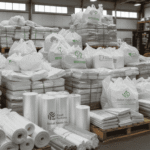
Choosing the Right Retail Food Bags: A Key to Freshness and Safety
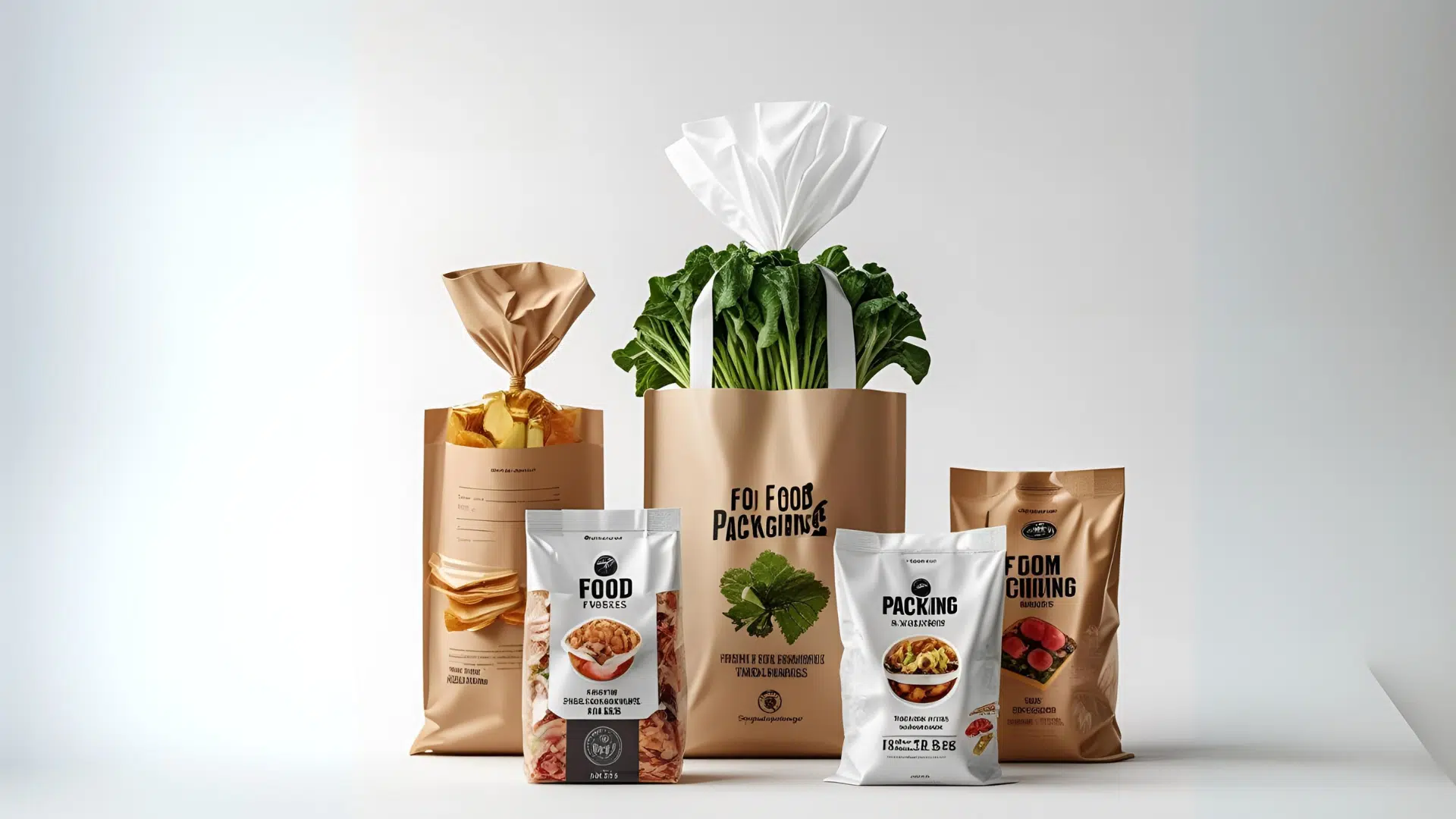
Food packaging does more than just carry items.
It helps preserve freshness, ensures safety, and builds trust between brands and consumers. For any food business, from local stores to large chains, choosing retail food bags is a decision that affects quality, hygiene, and customer satisfaction.
With so many types of bags available, it can be confusing to pick the right one. But making the right choice is crucial. The right bag can extend shelf life, prevent contamination, and make your food products look appealing. In this blog, we’ll explore why selecting the right retail food packaging matters and how you can make the best choices for your business.
Why Packaging Matters in the Food Industry
Packaging is more than a container—it’s a protective layer between your product and the outside world. Good retail food packaging keeps food fresh and prevents damage during transport or storage. It also creates a professional appearance that makes customers feel confident in your product.
In a store or a delivery bag, the condition of the packaging says a lot. If it’s crumpled, leaking, or looks cheap, customers may worry about the quality of the food inside. On the other hand, high-quality food storage bags can give customers a sense of care and cleanliness.
The Role of Fresh Food Packaging
Freshness is key when it comes to food. Nobody wants stale bread, wilted greens, or soggy pastries. The right fresh food packaging helps lock in moisture when needed—or keep things dry when that’s better.
For example, fruits and vegetables need breathable bags that prevent moisture buildup, while meats may need vacuum-sealed food-grade bags to avoid exposure to air. Bread might require paper bags with a window to allow some air circulation while still keeping it protected.
Choosing the right material is part of the equation. Plastic, paper, foil, and compostable materials all have their pros and cons. Each one offers a different level of protection and shelf-life enhancement. That’s why choosing retail food bags based on the specific needs of your product is essential.
Safety Comes First
Safe food packaging is a non-negotiable aspect of any food business. Poorly made or non-food-grade bags can lead to contamination, affecting both customer health and brand reputation. Food-grade bags are made from materials approved for direct contact with food. They’re free from harmful chemicals and toxins that can leach into food.
Some food bags come with special barriers to block out oxygen, light, or bacteria. These advanced features help keep food safe for longer. For example, deli meats and dairy products benefit from multi-layered food storage bags with sealing capabilities.
Additionally, tamper-proof seals and resealable closures can increase trust. Customers feel more confident buying products that are properly sealed and labeled.
Custom Food Bags for Better Branding
In a competitive market, packaging isn’t just practical—it’s part of your brand. Custom food bags allow businesses to add logos, brand colors, and even nutritional information or QR codes. These personalized details build trust and recognition among customers.
Retail packaging solutions that include branding not only help with marketing but also make your products stand out on the shelf. Imagine buying cookies from two bakeries—one in a plain bag, and the other in a well-designed custom bag with a warm, welcoming message. Most people would choose the second option, even if both cookies taste the same.
That’s the power of presentation. Custom food bags are a smart investment in both marketing and customer experience.
Matching the Bag to the Food Type
Different foods need different packaging. A one-size-fits-all approach doesn’t work when it comes to food safety and quality.
Hot foods like ready-to-eat meals need heat-resistant bags that can handle steam and grease. Cold foods like salads or frozen items require packaging that can tolerate moisture and low temperatures. Dry foods like snacks, nuts, and cereals need air-tight sealing to prevent them from going stale.
The texture and shape of your food items can also determine the type of bag you need. For delicate pastries, bags with padding or stiff sides may prevent crushing. For liquids like soups or sauces, leak-proof food storage bags are a must.
This is why it’s important to evaluate each product and choose a packaging solution that best supports it. Retail packaging solutions should always focus on function first and style second—but ideally, both work together.
Eco-Friendly Options Are Gaining Popularity
As more customers care about the environment, food businesses are starting to shift toward sustainable options. Biodegradable and compostable food bags are becoming more common. These bags break down naturally and reduce the amount of plastic waste in landfills.
While these may be slightly more expensive, they appeal to eco-conscious customers and improve your brand image. If you run a café, farmers market stall, or health-conscious food brand, using compostable or recyclable bags can help you stand out.
Retail food packaging that balances sustainability with safety and function is quickly becoming the new standard.
Storage and Transportation Needs
Another factor in choosing retail food bags is how your products will be stored and transported. Will they be kept in a fridge? Do they need to survive a long journey in a delivery van? Will they be stacked or displayed on shelves?
Packaging must be strong enough to handle these conditions without breaking, tearing, or leaking. Bags that are too thin might save money upfront, but can lead to costly waste if they fail during handling.
Good packaging helps reduce product loss and customer complaints, which can ultimately save money and protect your reputation.
Regulations and Compliance
Retail food packaging must follow certain regulations set by health and safety authorities. This ensures the materials used are safe and that labeling is accurate. Food businesses must stay informed about local laws, especially when dealing with perishable items, allergens, or special ingredients.
Always work with suppliers who understand and follow food safety rules. Using certified food-grade bags and following proper labeling practices not only protects your customers but also shields your business from legal trouble.
Final Thoughts
Choosing the right food storage bags isn’t just about looks—it’s about quality, freshness, safety, and trust. From food-grade materials to custom designs, every decision affects how your customers see and experience your product.
In a world where consumers are more aware than ever, investing in proper retail packaging solutions can make all the difference. Whether you’re packaging fresh produce, baked goods, snacks, or ready meals, the right bag ensures your food stays as good as the day it was made.
So take the time to evaluate your options, test materials, and work with trusted suppliers. Because at the end of the day, safe and fresh food keeps your customers coming back for more.
Share:
Get A Quick Quote
Social Media
Most Popular

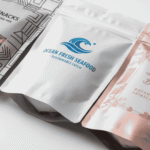
Top Ways Custom Packaging Builds Stronger Customer Loyalty
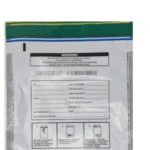
Everything You Need to Know Tamper-Evident Bank Bags
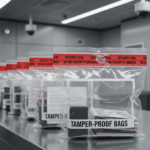
Ensuring Evidence Integrity: Importance of Tamper-Proof Bags
Categories
Tags
Related Posts
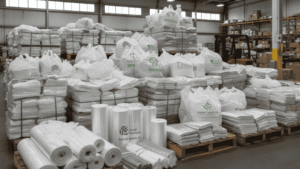
Wholesale Plastic Bags: The Cost-Effective Choice for Every Business
Every business, big or small, relies on packaging to operate smoothly. From retail stores and grocery shops to warehouses and online sellers, packaging plays a
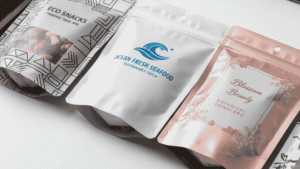
Top Ways Custom Packaging Builds Stronger Customer Loyalty
Brands today compete for attention in every possible way, but one area many still overlook is packaging. The moment a customer receives an order and
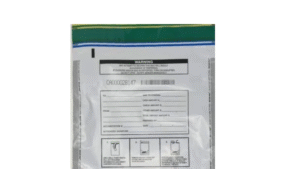
Everything You Need to Know Tamper-Evident Bank Bags
You cannot afford to take security lightly when it comes to handling money. From the moment cash is collected, picked up by the authorized person,
